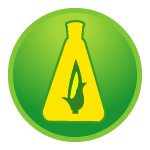 Ethanol, at one time the savior of America’s energy needs, has a darker side. Production uses approximately 3 gallons of water to create 1 gallon of ethanol. With concerns about local reductions in drinkable and agricultural water (Some plants can easily use 3 million gallons of water per week.), NIMBY (not in my backyard) fights are taking place. Water is not the only concern. Increased truck traffic, the sickly sweet smell of fermenting corn, and fears about having a very large still nearby are other factors people do not like.
Ethanol, at one time the savior of America’s energy needs, has a darker side. Production uses approximately 3 gallons of water to create 1 gallon of ethanol. With concerns about local reductions in drinkable and agricultural water (Some plants can easily use 3 million gallons of water per week.), NIMBY (not in my backyard) fights are taking place. Water is not the only concern. Increased truck traffic, the sickly sweet smell of fermenting corn, and fears about having a very large still nearby are other factors people do not like.
Besides the NIMBY group, there is also a scientific group trying to work the math to see if ethanol production is energy positive or if it creates less energy than it takes to produce it.
I do not know the answer and I do not know who to believe. I am suspicious of sites like the American Coalition for Ethanol. It reminds me too much of a corporate front despite its claims that it is a grassroots organization. It looks too slick. After thirty years of tobacco scientists telling us that cigarettes are safe, can I believe the scientists? Can I believe the people who don’t want an ethanol plant in their backyard? Maybe they are just late adapters afraid of change. Should I trust the big business farmer who is growing more corn this year than ever before? Or are they just in it for the quick buck? Can I trust our current President who has touted ethanol as a major answer to our dependence on imported oil?
I believe that we will all find out.
I think the easiest way to find out about the effectiveness of ethanol production from corn is to study moonshine. These renegades get no government subsidy and have no regulations to follow. If they can make a profit selling distilled fermented corn (which is what ethanol is), then there may be hope. But moonshiners get anywhere from $20 to $40 per gallon. I do not want to pay that for ethanol, but then they do not have the same economies of scale.
I hope plant-based ethanol is part of the answer to reducing our need on fossil fuels. But there are a lot of unanswered and fuzzily answered questions to wade through. There is also a lot we do not yet know about the best production techniques. Yeast, bacteria and enzymes are all used in the the current process. Each one of these could be drastically changed and update overall productivity. For all we know, a certain hybrid of corn may be better than others. I am not suggesting that a GMO corn be created just for ethanol production, but I am sure that in some secret lab somewhere, someone is working on just that thing.





